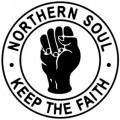Denis Johnson: An Introvert Genius With Dynamite In His Fingertips
The incumbent ward of the great American novel, Denis Johnson follows in the footsteps of Bukowski and Kerouac, refusing to be stupefied by the myth of the American dream.
It’s interesting that out of all the historical art movements, the great American novel has stood the test of time. Rock and roll has long ago been diluted into a digital, machine like age, which is a shame given it’s power and potential but American literature still thrives to find an original voice, an individual capable of being controversial enough to wind up the sensibilities of liberal America and talented and disciplined enough to see the job through.
There’s a certain romance in this which is particularly distinctive to publishing houses in the states.
There’s a difference across the Atlantic in what the authenticity of this voice means compared to its British cousin. In the UK, the novel is still, for the most part governed over by the middle to upper classes. Apart from Irvine Welsh, no real working class writer has came smashing through with a closed fist. American fiction on the other hand is a steady uppercut through time, branded through with angry, thrilling young voices born on the wrong side of the tracks. Writers like Algren, Kerouac, Bukowski, Selby Jr and Denis Johnson. An introverted genius who shuns publicity and celebrity but who has absolute dynamite in his fingertips.
Johnson’s books are not so much the death of the American dream as it’s frayed core. The lost, the disenfranchised, self destructing their small lives in even smaller towns.’ Feeling dizzy as the stars through parked cars,’ as the singer Elliot Smith once sung. In one of his early and most famous works ‘Jesus’ son’, Johnson interlinks the lives of several of these characters to brilliant effect.A hospital janitor under the effect of hallucinogens who saves the life of a man stabbed in the eye by his wife. A drifter who claims to have an extra sensory perception by knowing he is about to be in a car crash. Various addicts and murderers drop in on the story too not dramatically but slowly, as if they’re moving through thick liquid. Johnson seems to suggest that Dante’s seventh circle of hell isn’t below the surface at all but in the bars and apartments of his hometown Iowa.
More…
Literature’s Most Prolific Womanisers
Jack Kerouac: The World’s First Rock N’ Roll Star
In ‘angels’, a story of a heist that goes terribly wrong, Johnson writes the following about a man, who after too many bad decisions finds himself on Death Row.
‘It takes the violence inside a man to wear him away or consume itself, depending on who is the candle and who is the light.’
These are lines hand carved by a master. Johnson doesn’t pin end his books with street hassle poetry or hand wringing morality but when he does say something something about the human condition - it has some sense of echo to it. Those lines could be about a football hooligan or a terrorist or an evil dictator staring through evil shades into a death pit. That’s the fantastic thing about Johnson really. Unlike other writers stuck fast to the confines of their genre like superglue, his ambition and the sheer scope of his work is huge.
There are many in fact that believe his Pulitzer prize nominated book ‘train dreams’ should have won the hallowed title in 2008. It didn’t, after the Pulitzer hierarchy controversially chose, at the last minute not to award a prize that year. Even the judges raised a massive eyebrow at the decision, and much like his criminally ignored dip into the conventional crime genre ‘nobody move’ - many feel he’s been the victim of certain politics from certain quarters. Whilst many writers champion Johnson ( Scottish writer Alan Warner has written articles about him ) Johnson’s stance on publicity and award ceremonies remains strictly old school. Like Bukowski he no doubts sees fame as ‘an old woman sat outside my window’. In his refusal to play the game, he may have silenced himself out of certain awards and professor roles but his integrity has remained beautifully intact.
His accessibility is another key to his genius too. I’ve never come across anyone who hasn’t read Denis Johnson and thought his prose wasn’t an easy world to gain entry to. His short, clipped sentences have no superfluous fat on them. With a surgeon’s precision he strips away language and background till all your left with is a blue centre light popping on the page. It may seem an easy thing to do to an outsider, but actually it’s a style only for the very big boys. As Johnson writes in Jesus’ Son…
‘The travelling salesman fed me pills that made the lining of my veins feel scraped out, my jaw ached, I knew every raindrop by its name. I sensed everything before it happened.’
It seems quite ironic that the title of that same book was taken by Johnson from the band the Velvet Underground. Much like Lou Reeds gang of malcontents, his influence is such that whilst he may not have had huge commercial success almost anyone who comes across his work feels almost an urge to pick up a pen or to sit at a computer screen and create their own world. It’s a gift that great artists always pass down and one which Johnson may or not be supremely aware of. As long as he keeps on writing those wonderful novels from his bunker in Iowa, it hardly matters.
If you like it, Pass it on
 COMMENTS
COMMENTS
Johnson does not come from the 'wrong side of the tracks'. His father worked for the State Department, which is about as middle-class as it gets. And both Kerouac and Bukowski came from solidly bourgeois backgrounds. Kerouac even claimed to be descended from a Breton nobleman. They're all good writers but publishing is just as much a middle-class concern in America as it is in the UK.
If I wanted proletarian realism I'd have stayed on the farm.


 RELATED
RELATED







